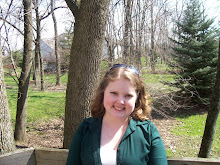He responds to a post:
Responding to Mark
Though I'm trying to move on past my monster post on leaving Catholicism for Orthodoxy, Bnet has posted a link to it on the front page today, and my friend Mark Shea has kindly written a companion piece in response. In it, Mark says some things that I really must respond to, because I don't want to leave the impression that I agree with his interpretation of my words. To wit:
Mark:
For instance, I don't believe that the personal charisma—or lack thereof--of a bishop is sufficient reason to leave the Catholic Church, just as I don't believe the sins of bishops and priests somehow de-legitimate the nature of the one, holy, catholic, and apostolic church any more than Judas' or Peter's did.
I can't figure out why some folks get the idea that I changed my church because Archbishop Dmitri is a lovely man. When I wrote about him presiding over the feast in his humble cottage like a "grandfatherly Gandalf," I was trying to paint a picture of a wise old man who acted not as a CEO but as the head of a family. The material modesty in which he lives is plain, and it told me something about his character. Likewise, he is quite close to his flock, and relates to them in a way that I'd never seen before. I presume this has more to do with him than with Orthodoxy itself, but I could be wrong. The point is, what I saw in him, and in the congregation, was a family -- and that's what Julie and I were so hungry for. I had reached the limit of where abstract reasoning could take me, and I was completely burned out. What I needed was a family. And God showed me one.
Mark:
Like Rod, I converted to the Catholic Church as an adult. Like Rod, I was grieved and appalled by the sex scandals. Yet despite the despicable acts of Catholic priests and their episcopal defenders that have been uncovered in recent years, I don't buy the proposition that my children are in continual mortal danger from predator-priests and that the only way to protect them is to leave the church. The chances of any individual child's encountering an abusive minister in the Catholic Church are about the same in any Christian communion: which is to say remote. The notion that going to Mass or Sunday school is an act analogous to throwing your child into a pit of ravening wolves or sending him on a forced march through a spiritual desert is much closer to hysteria than to reality. Indeed, we Sheas have found the Church to be a rich fountain of living water--and in the highly troubled and frequently heterodox Archdiocese of Seattle no less!
I'm sorry, but this is very far from what I actually said. I have never believed that going to Sunday mass with my children was risking their abuse, though certainly the close encounter with the priest who had been put quietly into active service in the conservative parish (against diocesan rules, and without telling the bishop) was a breaking point for us. No, leaving the Catholic Church for the sake of my children was primarily about the spiritual protection of my children. You get to a point in which you realize having to tell your kids on the way home from mass that what Father (or Deacon) said in the pulpit is not actually true (that is, not what the Church teaches) is undermining their faith. More importantly, you come to understand, perhaps, that they are not actually being taught much in the parish other than that being a Christian is little more than a matter of going through the rituals and feeling good about yourself. And specific to my own situation, my constant anger over not only the sex-abuse scandal, but other things going on in the Church forced me to confront the fact that I was becoming a poor teacher-catechist for my children, or rather, that my anger and despair and near-complete mistrust of the Church that we actually lived with (as distinct from the Church that lives in books), was teaching my kids by example that the Christian life is primarily a source of anxiety and anger. For that, some fault lies with me, and I accept that. But I still had Christian children to raise, and after fighting this war inside myself for three years or so, I bailed. Anyway, to say -- as some Catholics have, and as Mark does here -- that I left because I thought Father Freakydeak was going to lie in wait in the confessional for my boys creates a straw man.
Mark:
Likewise, I never thought Rod was realistic to demand, as he did in a op-ed essay a few years ago for the Wall Street Journal, that the pope remove and replace a huge portion of the American episcopacy "with the stroke of a pen," or to declare himself "let down" when the late John Paul II did not comply. If Rod had really listened to the author of Ut Unum Sint, John Paul's encyclical on the role of the papacy in the life of the church, he would have realized he was talking about a pope who had a more "Eastern" conception of his office than any pope in a thousand years: one who took seriously the notion that bishops are not just disposable middle management for the Vatican. In this, Orthodoxy fully concurs, which is why I don't see the sense of demanding an impossibility from the Holy Father and then joining an Orthodox communion that would have condemned the Holy Father for acting "unilaterally" if he had met Dreher's demands.
This is not a bad point, certainly, but the fact is, the Pope does have the power to do those things, and the fact that he couldn't even bring himself to speak about this horrible scandal, except obliquely ("the mystery of iniquity"), was to me, debilitating. If he had simply chastised them severely and publicly, that would have worked wonders, at least to my own morale. John Paul sure got rid of the French bishop Jacques Gaillot early in his papacy for teaching heresy, and it's a good thing the Pope did so, too. But look, if he can can a bishop for teaching error, why can't he can a bishop for allowing children to be raped? You know? [And yes, I don't expect the Orthodox bishops and priests to have clean hands either, but it is my hope that going into life as an Orthodox with a sadly more realistic idea of what I can expect from hierarchs will keep me from setting myself up for a great fall, as happened to me in Catholicism.]
Mark:
Finally, when Rod wonders if his revised view of the papacy—that the pope can never speak infallibly—is just an ex post facto justification for a choice made mostly on emotional grounds, I have to say, "Yeah." Because I don't buy Rod's notion that something about Catholic teaching has suddenly been shown to be false. The fact is, the overwhelming bulk of Rod's testimony regarding his Catholic-to-Orthodox conversion is not about his questions regarding the truth or falsity of Catholic teaching, but about ringing changes on how the sins and "self-satisfied" average-ness of Catholics drove him and his family to distraction and how the various comforts and beauties of Orthodoxy made them feel.
Two points here: 1) I agree that my choice was primarily emotional, and that my intellectual reasons were flimsy (but let me say that I strongly believe there can be strong intellectual grounds for leaving RCism for Orthodoxy, though they did not apply to me in my particular case). I found in the filioque controversy, and later in papal infallibility, reason to doubt seriously what I had once believed as a Catholic. I didn't go into that in my long post because these reasons ultimately weren't determinative. Regarding emotion, I don't apologize for that. We are not Vulcans, but human beings, and living in a constant state of anger, anxiety, distrust and crushing spiritual depression had finally taken its toll on me. And the formulas and syllogisms no longer served to dispel them.
I do get really tired, though, of this canard that I'm some sort of snob who hates the "averageness" of Catholics, so had to rush to Orthodoxy. What I despaired of was the sense of alienation that I often had at mass, that we were all here because we had nowhere else to go. I despaired not because I was so good, but precisely because I know how bad I am. I needed people who shared my beliefs to help me find my way to being a better man. I needed spiritual headship and counsel. I needed a reverent, beautiful liturgy to lift me out of the everyday and put me in closer touch with God. Suddenly I find myself being accused of snobbery because I could no longer carry on in a parish where you couldn't tell who actually believed in Catholicism, and it didn't seem to matter to the clergy whether or not anybody believed, or learned, just as long as the process kept moving along.
I perfectly well know that the family I've now become a part of is, like any family, flawed and broken. I don't expect perfection, and I won't be disappointed not to find it. What I have found is a beautiful and holy liturgy, serious spiritual guidance and teaching, and a family. I didn't have that before. I do now. And it makes a big difference. Thanks be to God. If you find that in Catholicism, God has blessed you too.
Monday, October 23, 2006
Subscribe to:
Post Comments (Atom)



No comments:
Post a Comment